Menu
Hot-Topics
February 19, 2026 | SCOTUS Reaffirms Fourth Amendment Standard for Police Responding to Household Emergencies
Category: Supreme Court Decisions

Mapp v. Ohio: Use of Evidence Under the 4th Amendment
In Mapp v. Ohio, 367 US 643 (1961), the U.S. Supreme Court ruled that evidence obtained through a search in violation of the Fourth Amendment could not be used as evidence in a state criminal case. The decision relied on the doctrine of selective inc...
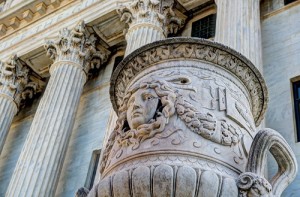
Week in Review: Court Hears Oral Arguments in Six Cases
The U.S. Supreme Court started its November sitting this week. The justices heard oral arguments in six cases. In addition to an important case involving Article III standing, the Court also considered several criminal law issues. Below is a...

U.S. V. O’Brien: Symbolic Speech and the First Amendment
In United States v. O'Brien, 391 U.S. 367 (1968), the U.S. Supreme Court upheld the constitutionality of a federal law that made burning or otherwise destroying draft cards a crime. In so ruling, the Court established a test for determining whether l...

Kennedy v. Louisiana: Eighth Amendment Restrictions on the Death Penalty
In Kennedy v. Louisiana, 554 U.S. 407 (2008), the U.S. Supreme Court relied on the Eighth Amendment’s prohibition of “cruel and unusual punishment” to limit the application of the death penalty. In Kennedy v. Louisiana, the majority sp...
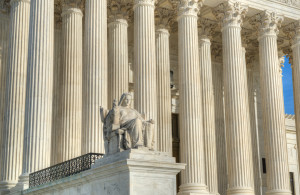
Perez v. Mortage Bankers Association: APA Compliance
What you need to know about Perez v. Mortgage Bankers Association In Perez v. Mortgage Bankers Association, 135 S.Ct. 1199 (2015), the U.S. Supreme Court held that federal agencies do not have to follow the "notice-and-comment" procedures of the Adm...

Brown v. Entertainment Merchants Association: Video Games & The First Amendment
In Brown v. Entertainment Merchants Association, 564 US 08-1448 (2011), the U.S. Supreme Court held that a California law banning the sale of violent video games to minors violated the First Amendment to the United States Constitution. The...
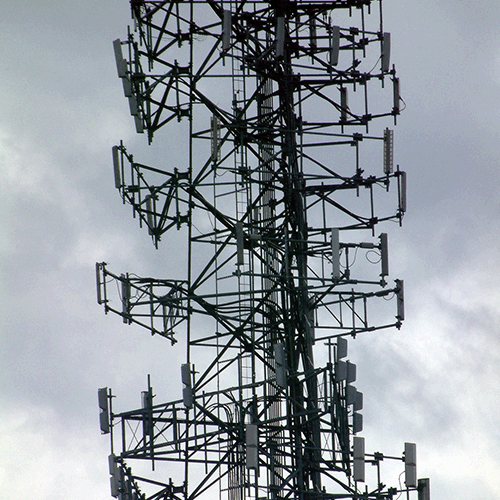
T-Mobile South LLC v. City of Roswell: Municipal Denials of Cell Tower Requests
In T-Mobile South LLC v. City of Roswell, 135 S.Ct. 808 (2015), the U.S. Supreme Court held that the federal Telecommunications Act mandates that municipalities provide a written explanation when denying a cell tower application. Moreover, the explan...
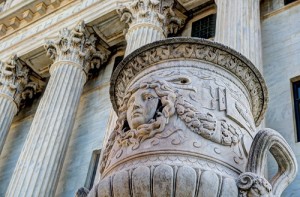
U.S. Supreme Court Review For October, 2015
U.S. Supreme Court Review for October, 2015: The justices of the Court have been busy since returning to the bench. The Supreme Court Review covers oral arguments in ten cases and added a number of important new cases to the docket. On Oc...
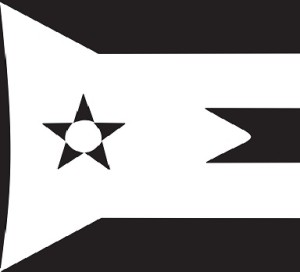
Boumediene v. Bush: Constitutional Rights of Guantanamo Detainees
In Boumediene v. Bush, 553 U.S. 723 (2008), the U.S. Supreme Court addressed the rights of foreign citizens detained at the U.S. Naval Base at Guantanamo Bay, Cuba. By a vote of 5-4, the Court held that in Boumediene v. Bush the detainees ha...
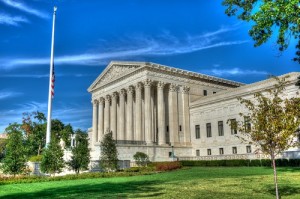
SCOTUS up to 47 cases for 2015-16 Term Docket
The Supreme Court (SCOTUS) kicked off its new term on October 5, 2015 and filled about 2/3 of its docket. In total, SCOTUS granted certiorari in thirteen new cases during its September 28 long conference, bringing the docket to 47. Last term th...
Previous Articles
SCOTUS Decision in Bowe v. United States Is First of the 2026 Term
by DONALD SCARINCI on February 5, 2026
In Bowe v. United States, 607 U.S. ___ (2026), the U.S. Supreme Court held that Title 28 U.S.C. § ...
SCOTUS Rules State Can’t Immunize Parties from Federal Civil Liability
by DONALD SCARINCI on January 29, 2026
In John Doe v. Dynamic Physical Therapy, LLC, 607 U.S. ____ (2025) the U.S. Supreme Court held that...
Supreme Court to Address Racial Discrimination in Jury Selection
by DONALD SCARINCI onWhile the U.S. Supreme Court has concluded oral arguments for the year, it continues to add cases t...
The Amendments
-
Amendment1
- Establishment ClauseFree Exercise Clause
- Freedom of Speech
- Freedoms of Press
- Freedom of Assembly, and Petitition
-
Amendment2
- The Right to Bear Arms
-
Amendment4
- Unreasonable Searches and Seizures
-
Amendment5
- Due Process
- Eminent Domain
- Rights of Criminal Defendants
Preamble to the Bill of Rights
Congress of the United States begun and held at the City of New-York, on Wednesday the fourth of March, one thousand seven hundred and eighty nine.
THE Conventions of a number of the States, having at the time of their adopting the Constitution, expressed a desire, in order to prevent misconstruction or abuse of its powers, that further declaratory and restrictive clauses should be added: And as extending the ground of public confidence in the Government, will best ensure the beneficent ends of its institution.
Awards





